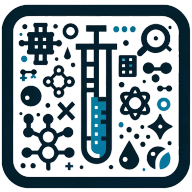6 Creative Excuses for Failing a Drug Test: Why They Don’T Work
Ever wondered what the most inventive excuse for failing a drug test is? This article explores six unique insights, starting with why it's best to avoid elaborate excuses and concluding with the importance of building and maintaining trust. The answers provide a comprehensive perspective on handling this sensitive issue. Discover whether these creative justifications are advisable or not, and understand the reasoning behind each viewpoint.
- Avoid Elaborate Excuses
- Rely on Scientific Evidence
- Uphold Professional Integrity
- Respect Workplace Policies
- Prioritize Safety and Compliance
- Build and Maintain Trust
Avoid Elaborate Excuses
In my experience, the most creative excuse I heard came from an athlete who claimed a failed drug test was due to consuming a protein bar imported from a friend's country, insisting it contained unique herbs and supplements that caused the positive result. The story was well-rehearsed, and he went as far as to show a foreign label he had printed out, hoping it would add credibility. While he presented it earnestly, it was immediately clear that neither the foreign snack nor any special ingredients were to blame. Through my years of working with athletes across disciplines like AFL, judo, and water polo, I've learned that honesty and a proactive approach yield far better results than elaborate excuses when navigating drug-testing protocols.
For anyone in similar situations, my advice is to avoid using creative excuses altogether. As tempting as it might be to pin the result on an unknown factor, it rarely withstands the scrutiny of sports authorities, who have strict procedures for testing and verification. In one case, I worked with an athlete who faced a potential ban due to a misunderstanding with supplements. My team and I helped him document everything he'd consumed, communicating openly with the governing body and ultimately clearing his record. With decades in sports rehabilitation and injury prevention, I have seen time and again that transparency is the best way forward, both for protecting one's career and building credibility in an environment that values integrity above all else.

Rely on Scientific Evidence
Drug tests are based on scientific evidence, which means that no matter how creative or convincing an excuse may sound, it does not change the hard facts that the tests present. Science relies on measurable data, and drug tests are designed to accurately detect the presence of substances. Attempting to explain away test results does not alter this underlying principle.
It is better to approach such situations with honesty and a willingness to address the underlying issues. Instead of leaning on creative excuses, one should consider the scientific basis of these tests and take steps toward accountability.
Uphold Professional Integrity
Offering excuses for a failed drug test can deeply undermine one's professional integrity and accountability. In any professional setting, characteristics like trust and reliability are highly valued. Making excuses rather than taking responsibility can create doubt about one's commitment to professional standards.
It's important to recognize that being honest and taking corrective steps can restore faith in one's professional capabilities. Let's focus on upholding integrity and demonstrating accountability in our actions.
Respect Workplace Policies
Attempting to justify drug use after failing a test goes against workplace policies that are in place to ensure a safe and productive environment. Companies establish these rules not just to be restrictive, but to protect everyone involved, including employees, clients, and stakeholders. Excuses often signal an unwillingness to adhere to these essential guidelines.
Following the rules can lead to a healthier and safer workspace for all. It's crucial to respect these policies and work within their framework for the greater good of the workplace.
Prioritize Safety and Compliance
Employers place a high priority on safety and compliance, which means that fabricated stories or excuses are likely to be met with skepticism. Safety protocols exist to minimize risks and protect everyone in the workplace. When someone fails a drug test, creating an excuse does not address the potential safety concerns that arise from drug use.
The focus should be on ensuring that the working environment remains safe and compliant. Choose to prioritize safety and take responsibility for your actions.
Build and Maintain Trust
Building and maintaining trust in a professional setting is crucial, and fabricating excuses when failing a drug test can significantly erode that foundation. Trust is built through consistent and honest behavior, and it can be quickly lost when one's actions suggest a lack of forthrightness. Repairing trust can be a long and difficult process, whereas taking responsibility from the start can prevent such damage.
In order to maintain strong professional relationships, it is vital to be transparent and accountable. Let's choose actions that build trust and strengthen professional bonds.

